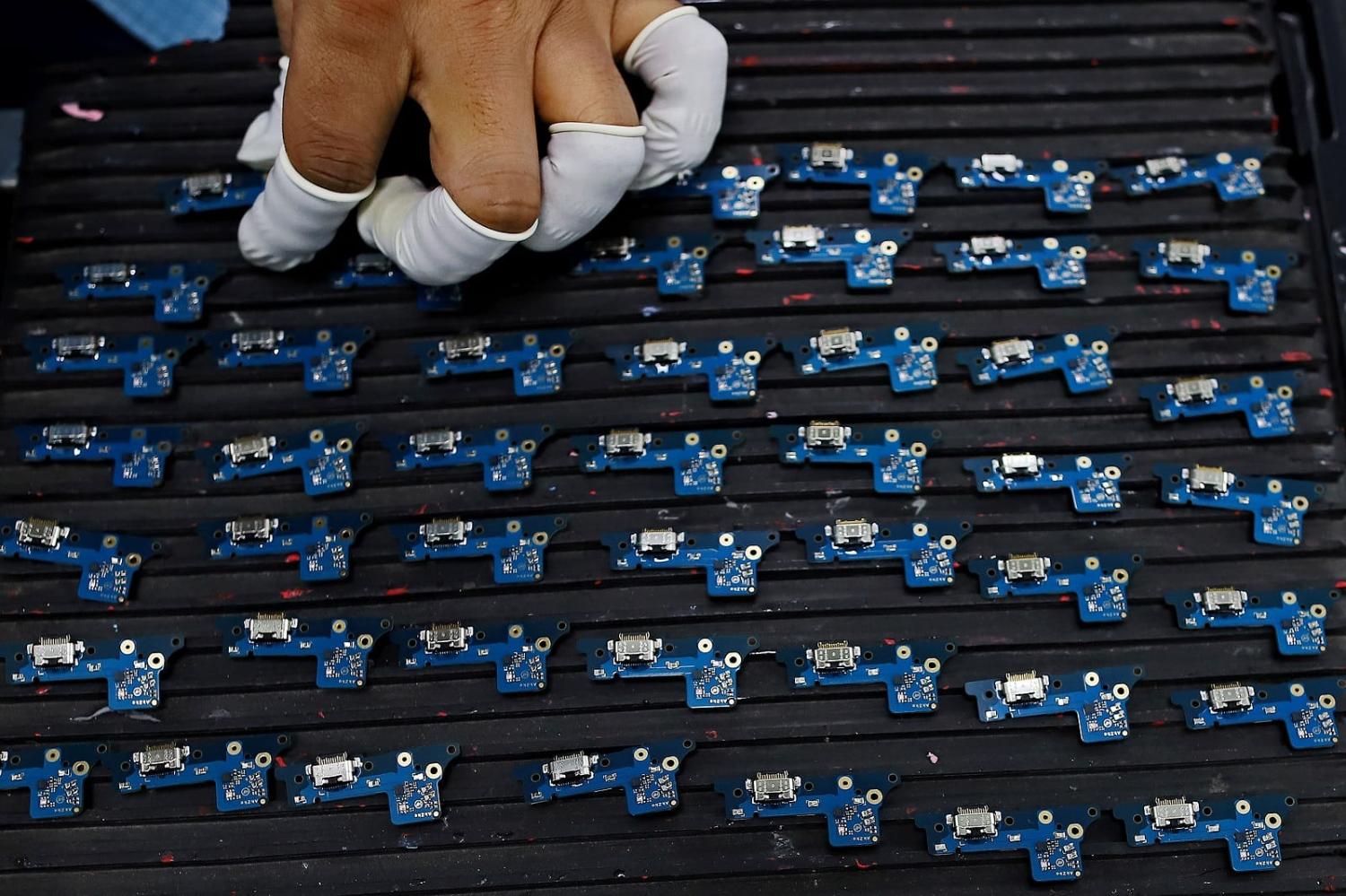The ongoing Russia–Ukraine war has induced several unexpected shifts in global geopolitical dynamics. While previously stagnant India–Russia trade has more than tripled in just one year (backed by oil purchases), India’s defence partnership with Russia is expected to take a hit, with Russian supply chains affected and its dependency on China set to rise. As a result, India is now looking to bank on indigenous capabilities.
Meanwhile, Russia has surprised the world by keeping its economy ticking and providing a sense of business as usual to its populace. To overcome isolation, Moscow has accelerated diplomatic outreach in search of new areas of engagement beyond Eurasia.
Though energy trade has been a boon to keep the Russian economy alive, the conundrum is multifold in the tech domain, primarily emerging from a sanctions-induced trade halt and a domestic brain drain as the war dries up tech jobs. For Russia, a steady supply of both hardware, such as semiconductor chips, and human resources has become a significant issue. In a way, Moscow is simultaneously staring at a Russian tech drought and a Chinese tech flood.
Considering this, Moscow now aims to craft a tech alliance in the Eurasian region. Last year, at the Eastern Economic Forum, an annual meeting held in Vladivostok and aimed at encouraging foreign investment in Russia, prominent Russian voices came together to make a case for building new ties and platforms for promoting Russian technologies.
At the forum, the Russian deputy minister of Industry and Trade, Alexey Gruzdev, emphasised the need to develop new techno-regional alliances based on inclusivity and openness for partnership. Accepting that Russia has witnessed radical changes in its list of partners, Moscow seems likely to expand its cooperation within the high-tech space. The president of Russia’s Technological Sovereignty Exports Association Andrey Bezrukov underlined that the world is now entering a new cycle with new technological alliances.
So while the gradually expanding Shanghai Cooperation Organisation, BRICS, and Eurasian Economic Union will serve as the multilateral platforms of choice, Moscow, mindful of avoiding an overdependence on Chinese tech, is looking at India as a priority partner.
At the upcoming India–Russia Business Forum later this month (as part of the St. Petersburg Economic Forum), prospects for India–Russia cooperation in high-tech will be again debated. The two sides aim to discuss opportunities in cybersecurity, IT, smart cities and manufacturing, with more than 20 Russian companies looking to partner with Indian counterparts.
For India’s tech diplomacy, this amounts to a Catch-22 situation. In the past year, India has rejuvenated its partnerships with the West. Through the Quad, members are prioritising technological evolution to buttress investment. India has launched the Initiative on Critical and Emerging Technology (iCET) with the United States to elevate and expand the strategic technology partnership and defence industrial cooperation. And as underlined by the recent visit to India by Japanese PM Fumio Kishida, the two countries are now focused on boosting cooperation in tech domains such as semiconductors and military hardware. India is also reportedly engaging in informal exploratory conversations with the AUKUS grouping on emerging technologies including artificial intelligence and electronic warfare.
Unlike energy trade – where oil or gas from the United States or Russia can be used for running the same machine – technology cooperation requires seamless cross-platform operation. An example of this is visible in Europe, where years of Chinese technology usage has made it difficult to identify and phase out as national security concerns mount.
As Moscow looks to carve a “Greater Eurasian Tech Alliance”, New Delhi will be wary of Beijing’s role in the framework, especially considering how India has taken steps towards decoupling from the Chinese tech ecosystem. This has been exemplified in New Delhi’s decisions to ban hundreds of Chinese apps and games and the creation of positive lists (akin to white lists) for procurement. At the same time, as India looks to boost engagement with Western partners, it will have to consider what proposed tech alliances offer in both the short and long term. As tech decoupling accelerates, possibly making way for a Second Cold War, choosing technology partners for an emerging multipolar world order will be a crucial decision.

